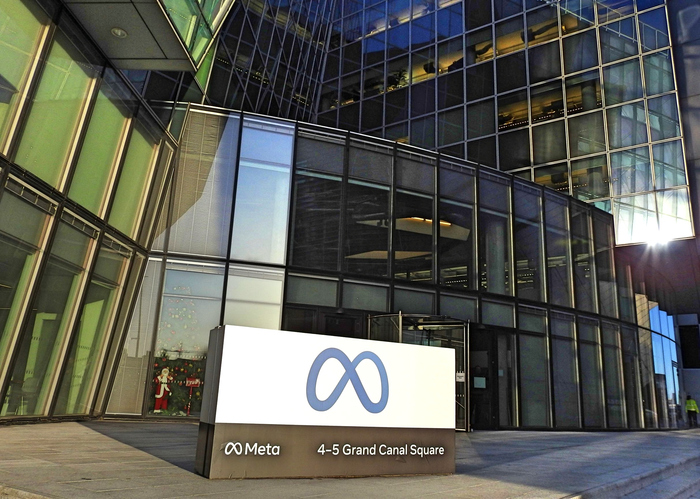What Happens After I Apply for an SEC Whistleblower Award?
The SEC Whistleblower Program stands as a testament to the U.S. government's dedication to maintaining transparency and integrity within the financial realm. But what transpires after you've courageously reported an anomaly and sought an award? Join us as we walk through the subsequent processes overseen by the SEC Office of the Whistleblower.
May 14, 2025

This information is provided for educational purposes only by Kohn, Kohn & Colapinto and does not constitute legal advice. No attorney-client relationship is created by accessing this content. Laws and regulations may change, and this material may not reflect the most current legal developments. If you believe you have a whistleblower claim, consult a qualified attorney to discuss your specific circumstances.
The Securities and Exchange Commission (SEC) Whistleblower Program is a crucial component of the U.S. government’s commitment to ensuring transparency and accountability in the financial market.
This program incentivizes insiders, often employees of companies, to come forward with significant information about securities laws violations that can lead to enforcement action by the SEC. In return, whistleblowers can receive financial awards if the information they provide leads to successful action and monetary sanctions.
But what happens after you’ve taken the brave step of reporting securities misconduct and applied for an award? Below, we outline the steps the SEC Office of the Whistleblower takes after receiving an application.
Allison Herren Lee, Ex-SEC Acting Chair, Strengthens Our Team with Focus on SEC Whistleblower Program
Allison Herren Lee, now Of Counsel at Kohn, Kohn & Colapinto, offers her expertise in the SEC Whistleblower Program and the Dodd-Frank Act. For guidance on whistleblowing and securities-related concerns, contact our firm for a confidential conversation with Allison Lee.
The SEC Award Application Process
SEC whistleblower reward applications are often reviewed by the staff at the SEC, specifically by the Office of the Whistleblower and other relevant divisions or offices, depending on the nature of the tip.
The Claims Review Staff (CRS) is an integral part of this process. The CRS will review the applications and make a preliminary determination regarding whether an award claim should be granted and the amount of such an award.
After the CRS’s preliminary determination, claimants have an opportunity to request a review of the determination by the Commission itself.
1. Preliminary Review
Once you submit your application, the SEC Office of the Whistleblower conducts a preliminary review. This initial assessment determines whether the application is complete and if it meets the basic criteria for an award. If any information is missing or if there are immediate disqualifying factors, the applicant may be notified at this stage.
2. Assessment of the Information Provided
The SEC evaluates then evaluates the quality, accuracy, and specificity of the information you’ve provided. Critical factors include whether the information was original and led to a successful enforcement action, and whether it caused the SEC to open a new investigation or significantly assisted an ongoing inquiry.
3. Claim Evaluation
Once the SEC has taken enforcement action based on the information provided, and if the action results in monetary sanctions exceeding $1 million, the Claims Review Staff (CRS) will evaluate the claim. They assess the significance of the whistleblower’s information, the degree of assistance provided, the program’s interest in deterring violations, and any potential negative conduct by the whistleblower.
4. Preliminary Determinations
After reviewing the claim, the CRS will issue a Preliminary Determination. This document will either propose an award or deny the claim. If an award is suggested, it will also indicate the award’s percentage, which typically ranges between 10% to 30% of the total monetary sanctions collected.
5. Opportunity to Contest
Whistleblowers have the right to contest a Preliminary Determination if they disagree with it. They can view the record that formed the basis for the CRS’s decision and present a written statement to argue their case.
Learn more
How Do I Appeal an SEC’s Whistleblower Award Determination?
6. Final Determination
After considering the whistleblower’s input (if any is provided), the CRS will make a Final Determination. This is the concluding step where the SEC decides whether or not to grant an award and determines its exact amount.
7. Payment of Award
Once the Final Determination is made, the award payment process begins. Awards are paid from the SEC’s Investor Protection Fund, which is financed through monetary sanctions paid to the SEC by securities law violators. The exact timing of the payment can vary, depending on various factors such as the collection of sanctions and other administrative processes.
8. Confidentiality
Throughout the entire process, the SEC maintains stringent confidentiality provisions. While certain circumstances may necessitate the SEC to share information with other entities (like other regulatory or law enforcement agencies), efforts are always made to protect the whistleblower’s identity.
The SEC Whistleblower Program stands as a beacon of hope in ensuring that the U.S. financial markets operate with integrity and transparency. This detailed process, from the initial submission of information to the final award payment, illustrates the SEC’s meticulous approach to recognizing and rewarding those who step forward in the interest of justice.
It also underscores the SEC’s dedication to both safeguarding the integrity of the market and protecting the brave individuals who come forward. With professionals like Allison Herren Lee supporting whistleblowers through their journey, individuals can find expert guidance and assurance as they navigate this intricate yet vital program.
Our Firm’s Cases

Environment & Human Rights Violations Exposed
Oil industry’s environmental crimes and cover-up in Colombia have been exposed. Whistleblower Andrés Olarte Peña, with the support of his attorneys Kohn, Kohn & Colapinto and the damning evidence compiled in the Iguana Papers, is calling for an investigation into Ecopetrol and its executives by the Colombian government and the U.S. Securities and Exchange Commission.

$30 Million Award
Protecting the confidentiality of Wall Street whistleblowers is among the most important breakthroughs in federal whistleblower law. Under the Dodd-Frank Act, whistleblowers can file anonymous cases, and everything about their case, including who they sued, remains secret.

$13.5 Million Award
Our firm represented an anonymous whistleblower, who on May 17, 2021, received a whistleblower award of almost $13.5 million. The SEC has issued more than $31 million in whistleblower awards related to this case.

![Reporting Recordkeeping Failures To The Sec [2025 Guide]](https://kkc.com/wp-content/uploads/2025/01/Recordkeeping-Failures.jpg)




